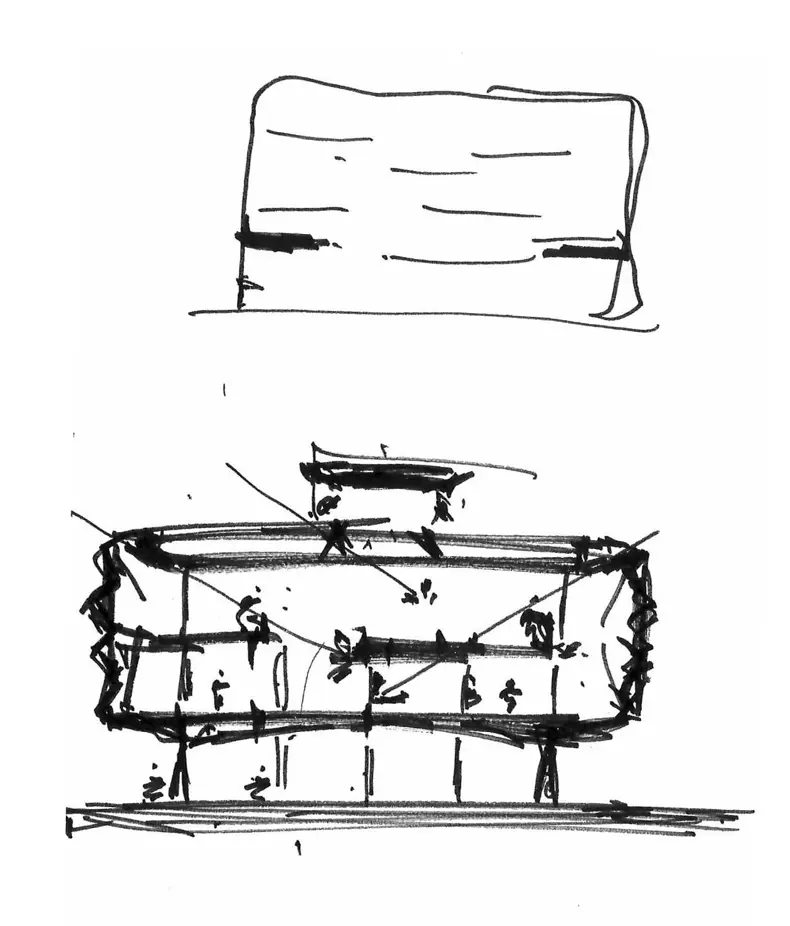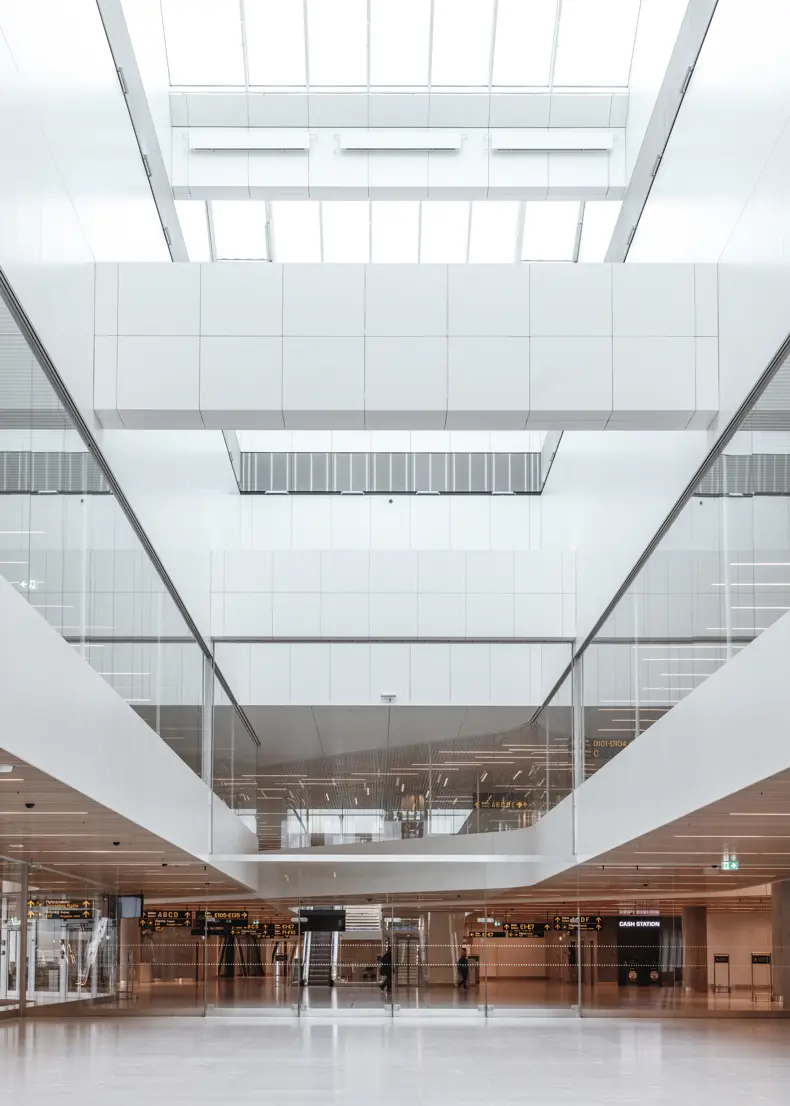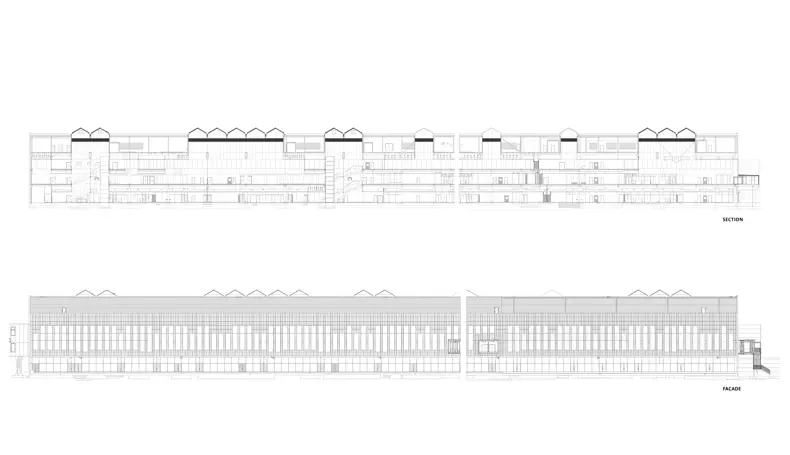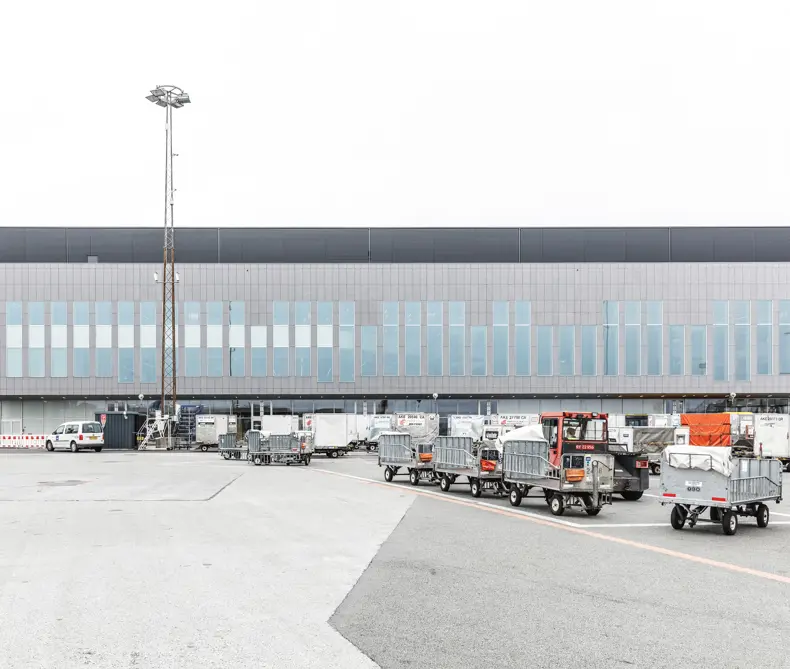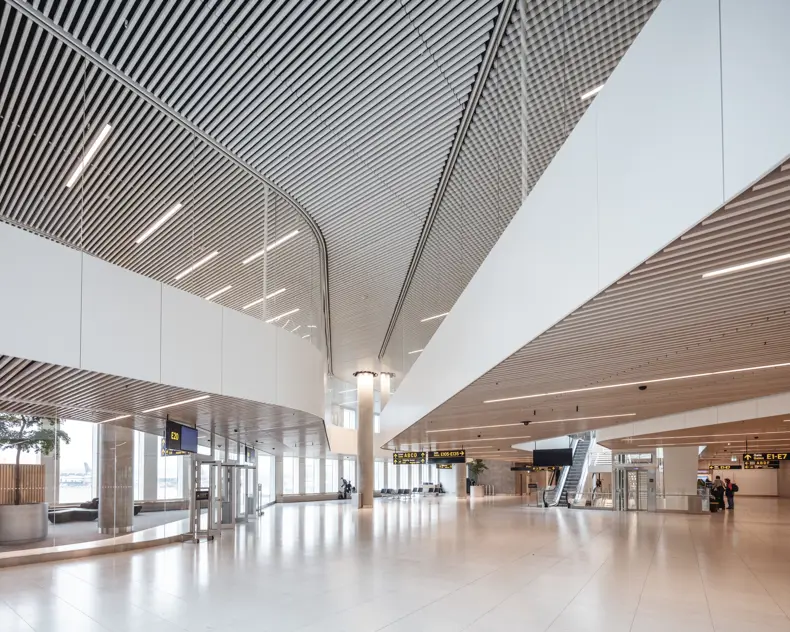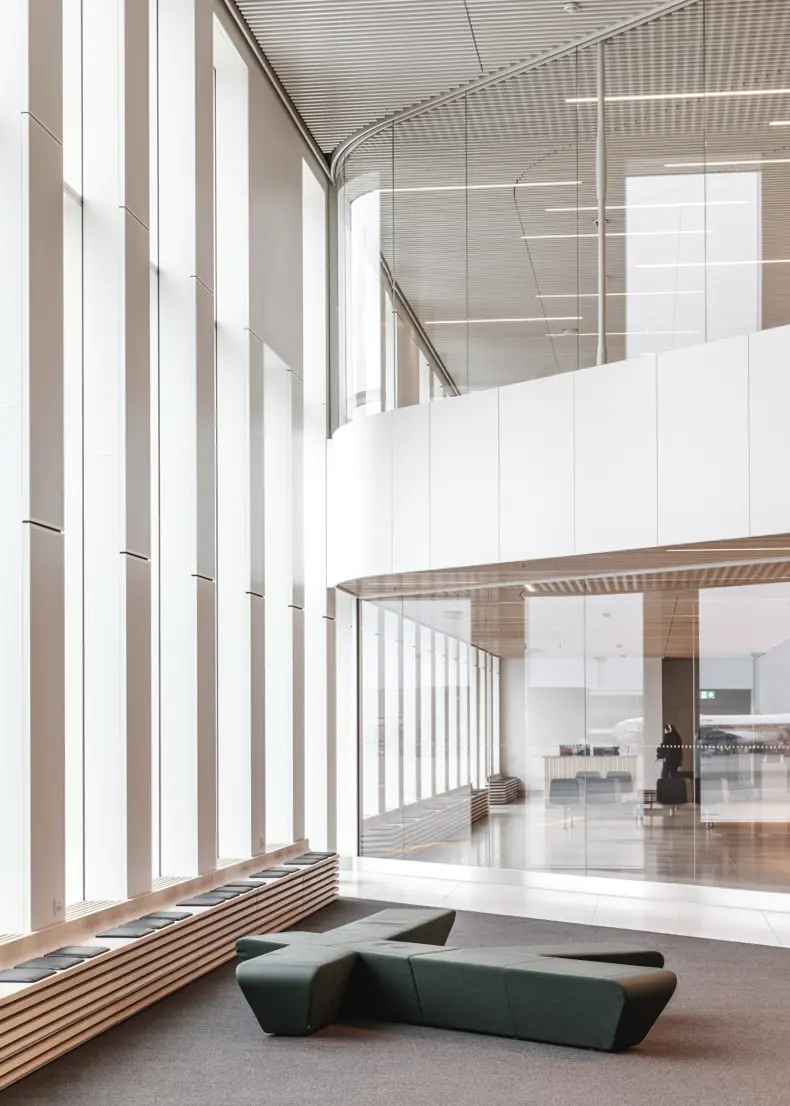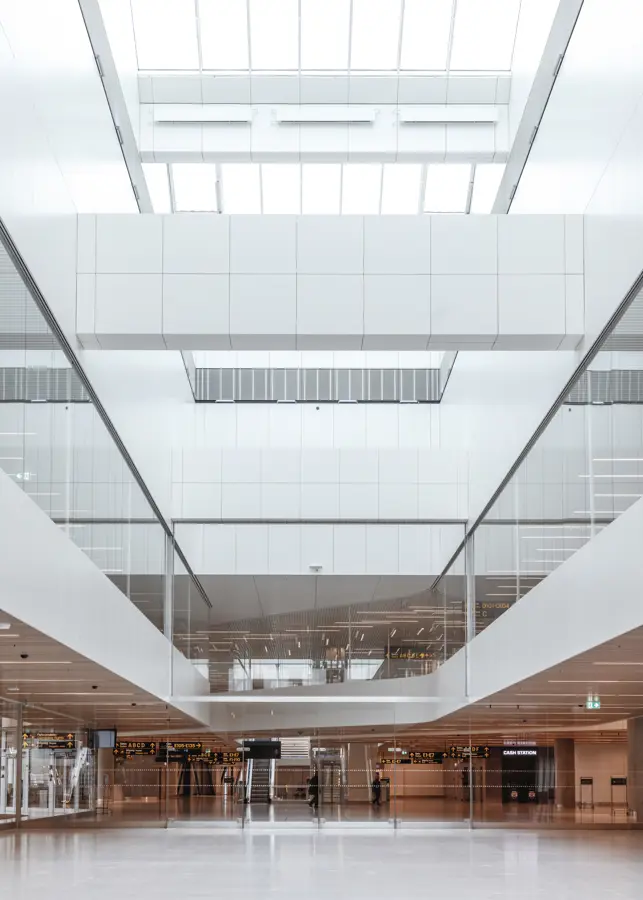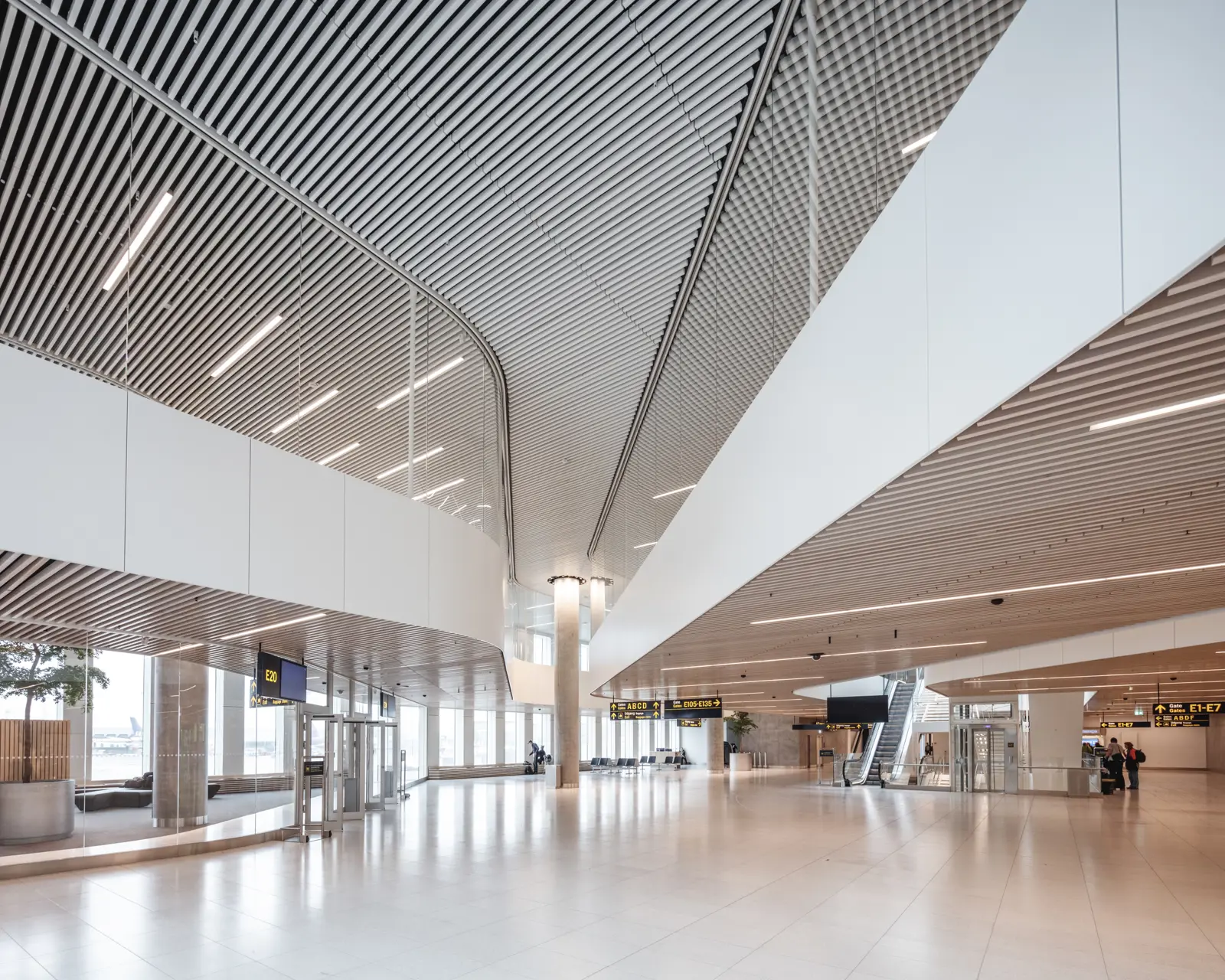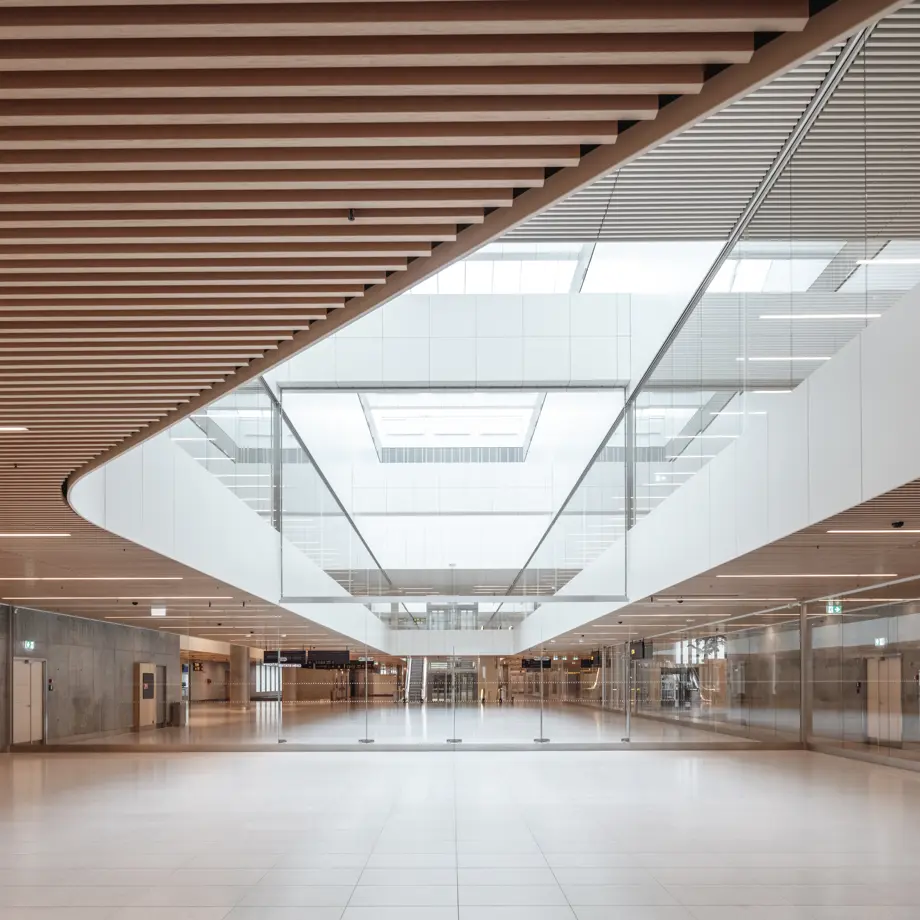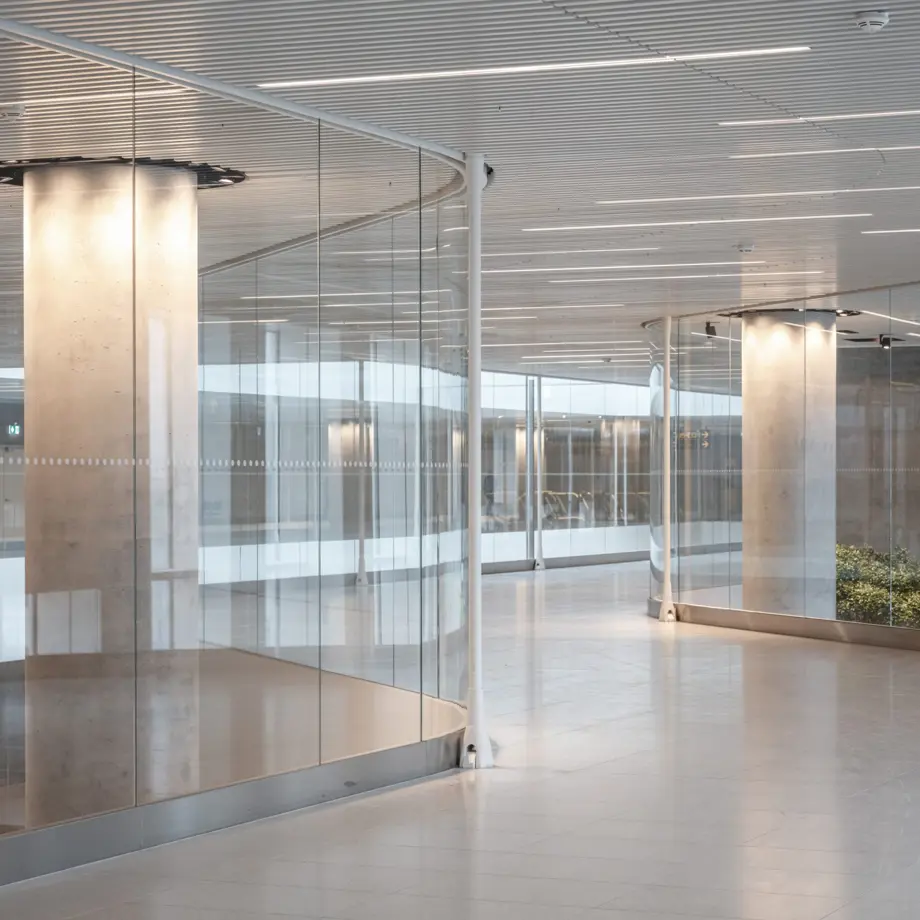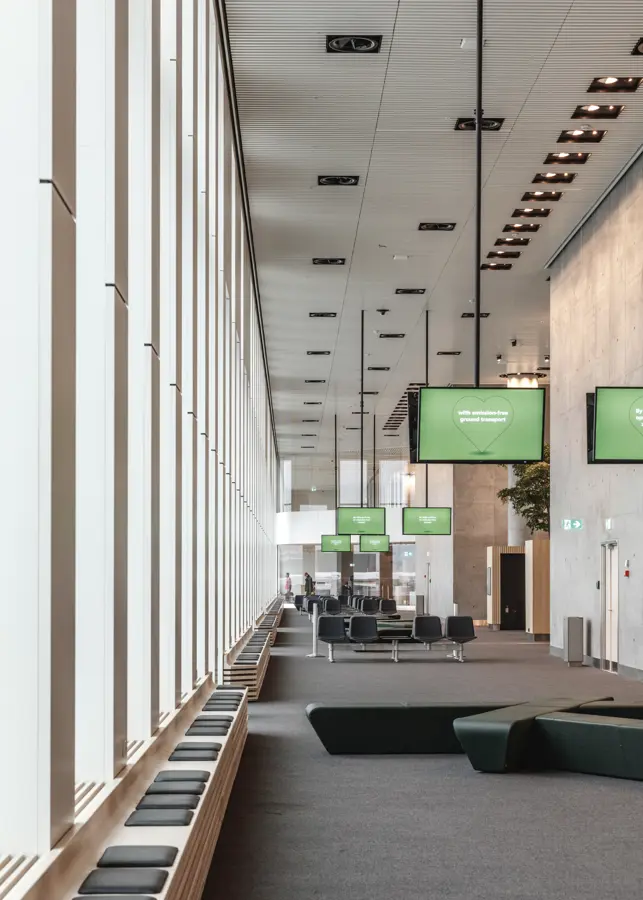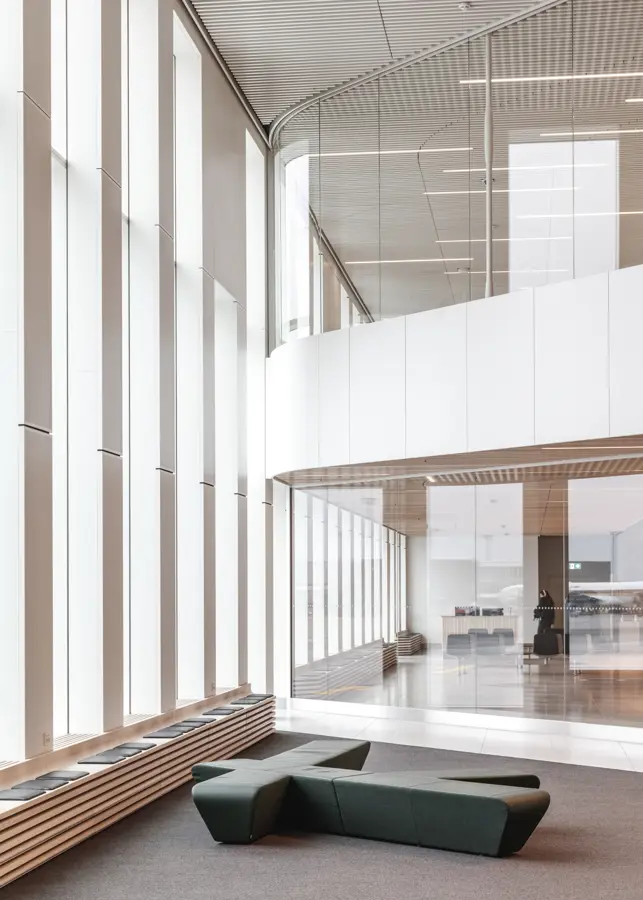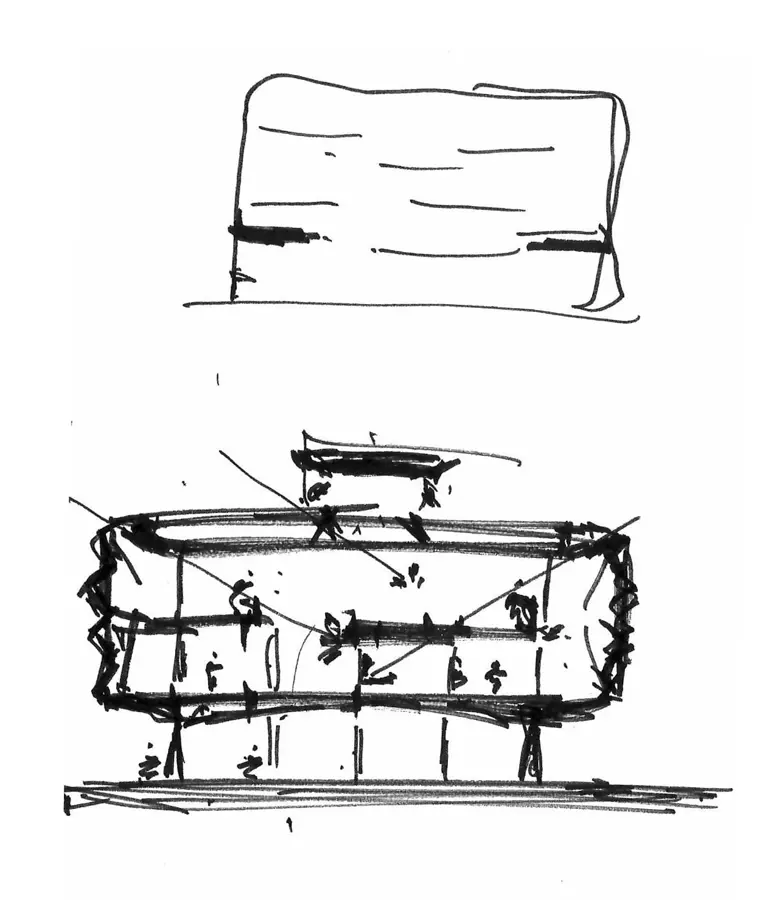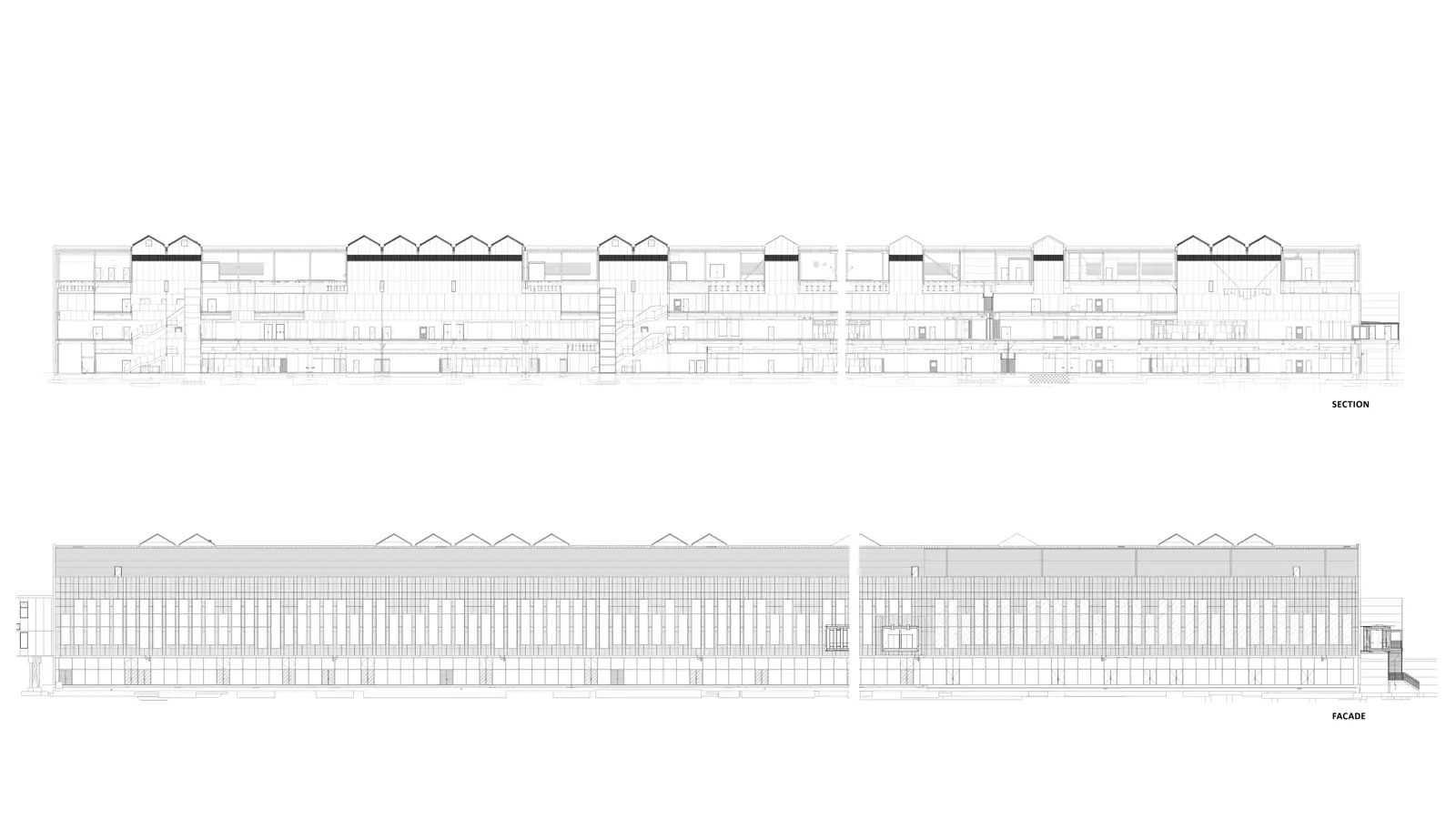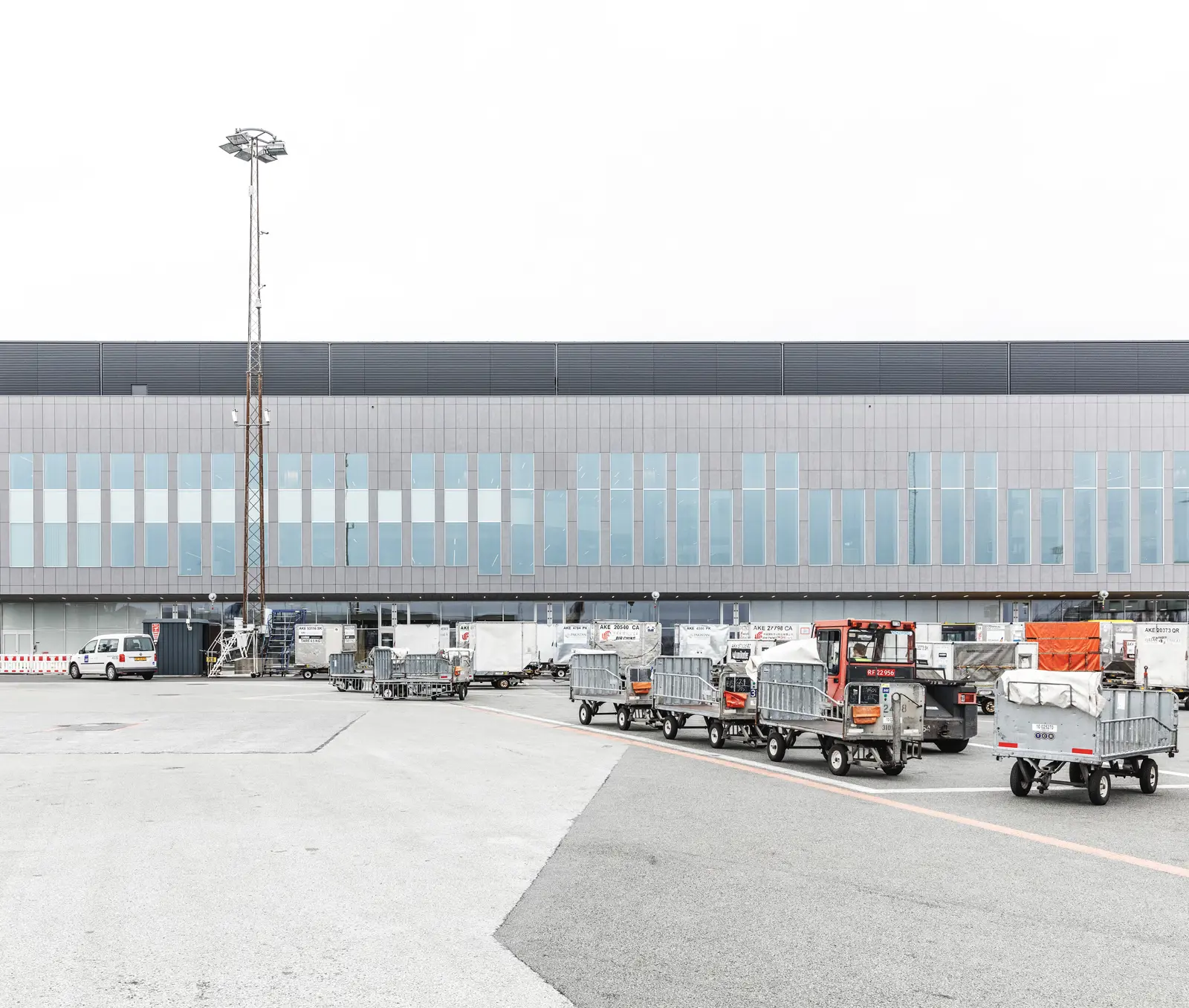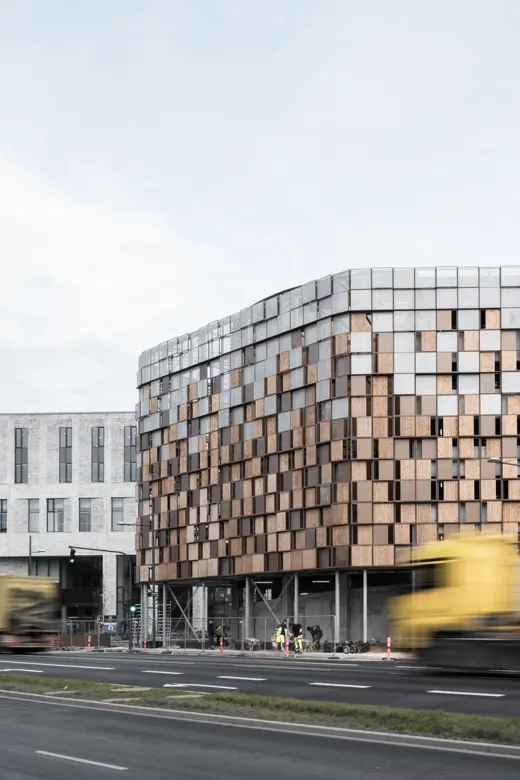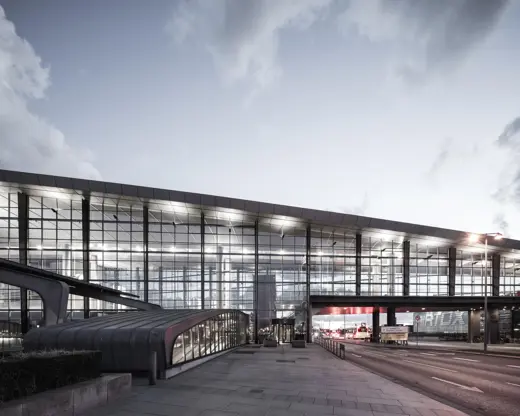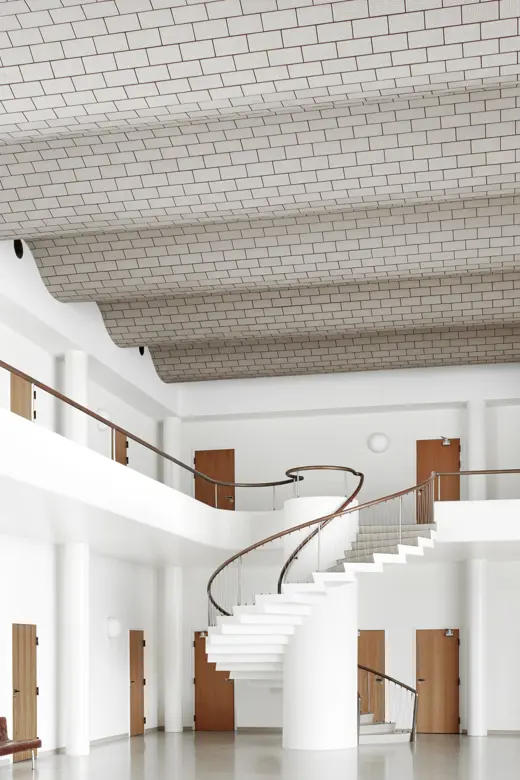
Pier E - Copenhagen Airport
-
Client
Copenhagen Airport A/S
-
Team
COWI A/S, Zeso Architects
-
Location
Kastrup Tværvej E 12, DK-2770 Kastrup
-
Size
36,000 m²
-
Status
Completed in 2020

Infrastructure
A travel experience of intense yet humble Nordic design
Copenhagen Airport consists of three terminals with a number of piers that distribute passengers to and from gates. Wrapped in Nordic aesthetic, Pier E is the biggest expansion of Copenhagen Airport in 25 years. It offers an intense yet humble architectural experience as a spatial flow machine bathing in daylight, with floating walkways lined with ash wood lamellas complemented by in-situ cast concrete, integrated artworks and marble terrazzo floors. The inspiration was the 1960 design of Terminal 2, which is an example of a complex airport building where balconies, floating walkways and a generous influx of daylight form a coherent expression.
